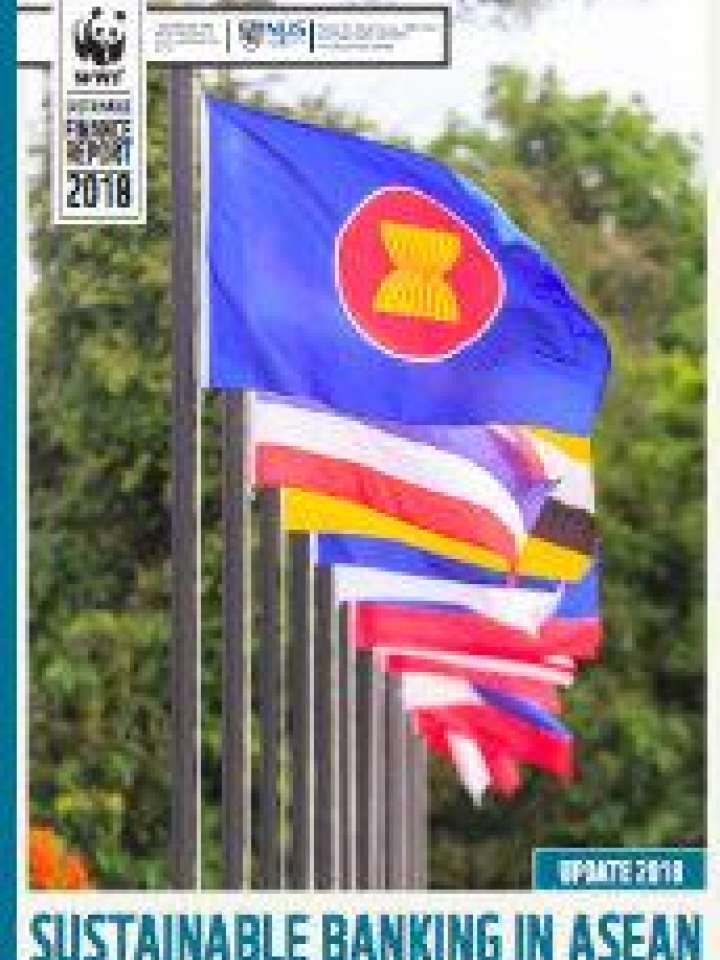Sustainable finance report 2018: Sustainable banking in ASEAN
This report is an update of the Sustainable Banking in ASEAN report issued by WWF in partnership with the National University of Singapore (NUS) Centre for Governance, Institutions and Organisations (CGIO) in October 2017. This report benchmarks 34 banks in six ASEAN countries – namely Indonesia, Malaysia, the Philippines, Singapore, Thailand and Vietnam – on their corporate governance practices and their integration of environmental, social and governance (ESG) factors into their business. The ESG factors include (but are not limited to) those which are having a particular impact in ASEAN, such as climate risk, deforestation, water scarcity, human rights and labour issues.
The assessment is based on a framework of indicators that represent (i) sound corporate governance practice (board, shareholders and stakeholders, disclosure and transparency, audit and risk); and (ii) robust ESG integration practice (purpose, policies, processes, people, products, portfolio). This report used English-language disclosures available publicly as of 3 July 2018 as the sole basis for the assessment, as these represent the information typically accessible to all stakeholders. It then compared this year’s results with last year’s to establish the progress that ASEAN banks have made on corporate governance and ESG integration.
This report is aimed at banks, banking regulators and banking associations in ASEAN, to help them understand changes in, and improve the level of, ESG integration, both in individual banks and across the wider industry. The report is also aimed at investors, within ASEAN and globally, who can use it to assess banks’ progress on ESG integration, understand whether this is aligned with their own ESG commitments, and engage with the banks on the issue as required. Report users can access the interactive Sustainable Banking Assessment (SUSBA) website (www.susba.org) to further explore and compare the results.
Explore further
